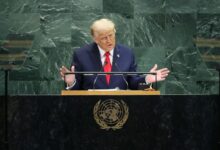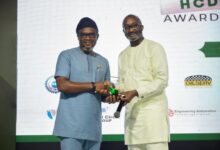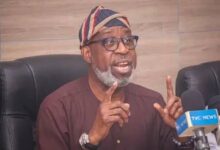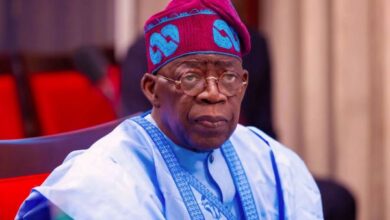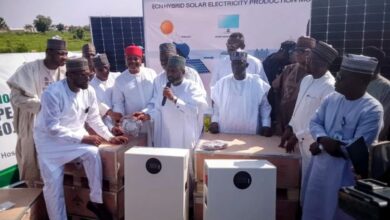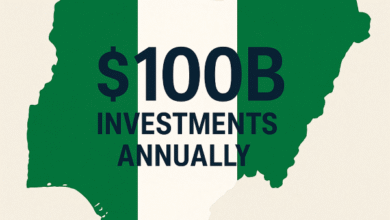Economists, others call for removal of fuel subsidy

Different stakeholders in the economic sector have called for the removal of fuel subsidy for the benefit of Nigerians.
The stakeholders made the call on Tuesday in Abuja at the launch of the Nigeria Development Update (NDU) report for 2022, by the World Bank.
Minister of Finance, Budget and Economic Planning, Zainab Ahmed, said the non-removal of fuel subsidy was hurting the nation and impeding investments in human capital development.
Ahmed, a panellist at the launch of the NDU, said if subsidy was not in the budget, there would be no need to borrow money to finance fuel subsidy.
She said: “Nigerians need to understand that this fuel subsidy government is paying now is affecting the nation.
“N4.5 trillion spent on subsidy is money we would have invested in health and education, but we are investing it in consumption, which is very wasteful.
“How many Nigerians own vehicles and generators that are benefiting from this subsidy’’?
She said the removal of subsidy was to take effect from June 2022, but because of the present political and socio-economic environment, subsidy would remain for an additional 12 months to 18 months.
“On the fiscal side, this is not something we had planned, but the reality of the times showed increased inflation and food prices are already increasing; so removing subsidy will further escalate the problems,’’ she said.
The minister said that the ministry had designed a programme to help to reduce the cost of subsidy “so we do not hit the N4 trillion additional deficit.
Gov. Charles Soludo of Anambra, also a panellist, said the removal of subsidy was long overdue adding that it benefited nobody.
“Imagine if N2 trillion or N3 trillion is saved today as a result of the removal of subsidy.
“Each state of the federation could be given about N50 billion to fix roads and the Federal Government will still have some N1 trillion to use.
“If the country continues with the subsidy, the CBN will continue to need money; it is a circuit. That deficit will continue to rise and how does the Federal Government pay its bills,’’? he queried.
Another panellist, Atedo Peterside, an economist, said there was a need for the right audience to be present at meetings to discuss issues such as fuel subsidy to have impactful results.
According to him, everything depends on the quality of the arguments you present to the right audience.
“The right audience for this discussion is not in this room. The governors who have the most to lose and gain should be the audience to try to work out some sort of deal.
“Bring it down to state level; let each governor decide if he wants to subsidise in his own state,’’ he said.
Peterside, Founder of Stanbic IBTC Bank, suggested that major presidential candidates be brought together to work out some kind of emergency deal concerning subsidy which could save whoever wins from inheriting more issues.
“The time of a change of government is the best time to arrive at some sort of national compact. Let us not just surrender and say we cannot do anything about fuel subsidy.
“The World Bank has done its bit; what needs to be done is by Nigerians to make one last push,’’ he said.
Peterside said there was the need to involve the finance minister and the National Executive Council to have heart-to-heart discussions on the issue.
Shubham Chaudhuri, World Bank’s Country Director in Nigeria noted that at the NDU launch in 2021, the bank estimated that Nigeria could lose more than N3 trillion in revenues in 2022.
Chaudhuri said this was because proceeds from crude oil sales would be used to cover rising cost of fuel subsidies that mostly benefited the rich, instead of going to the federation account.
“With oil prices going up significantly and with it, the price of imported fuel, we now estimate that the foregone revenues as a result of fuel subsidies will be closer to N5 trillion in 2022,” he said.
Presenting the report, Marco Hernandez, World Bank’s Lead Economist for Nigeria and co-author of the report, said that Nigeria was in a paradoxical situation.
READ ALSO:https://brandeconomy.com.ng/13500-functionaries-to-conduct-trial-census-in-7468-areas/
Hernandez said highlights from the report showed that growth prospects had improved compared to six months ago but inflationary and fiscal pressures had increased considerably, leaving the economy much more vulnerable.
“The report states that inflation in Nigeria, already one of the highest in the world is likely to increase because of rise in global fuel and food prices caused by the war in Ukraine.
“This is likely to push an additional one million Nigerians into poverty by the end of 2022, on top of the six million Nigerians already predicted to fall into poverty this year due to the rise in prices, particularly food prices.
“The report also states that inflationary pressures will be compounded by the fiscal pressures Nigeria will face in 2022 because of the ballooning cost of fuel subsidies at a time when oil production continues to decline.
“Hence, Nigeria, for the first time since its return to democracy in 199, and alone amongst major oil exporters, is unlikely to benefit fiscally from the windfall opportunity created by higher global oil price,” he said.
He added that Nigeria’s growing macroeconomic challenges in 2022 highlighted the continuing urgency for a departure from business as usual, and the need for consensus around a package of robust reforms.
Hernandez said the report highlighted three policy priorities which included reducing inflation; addressing mounting fiscal pressures at the federal and sub-national levels and catalysing private investment to boost job creation.
(NAN)


